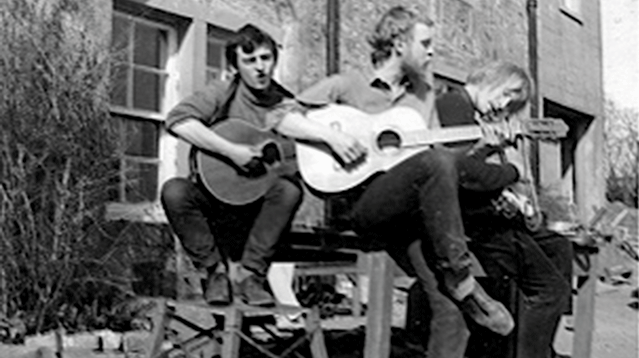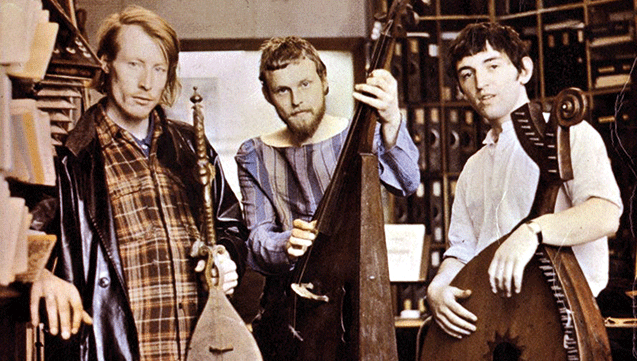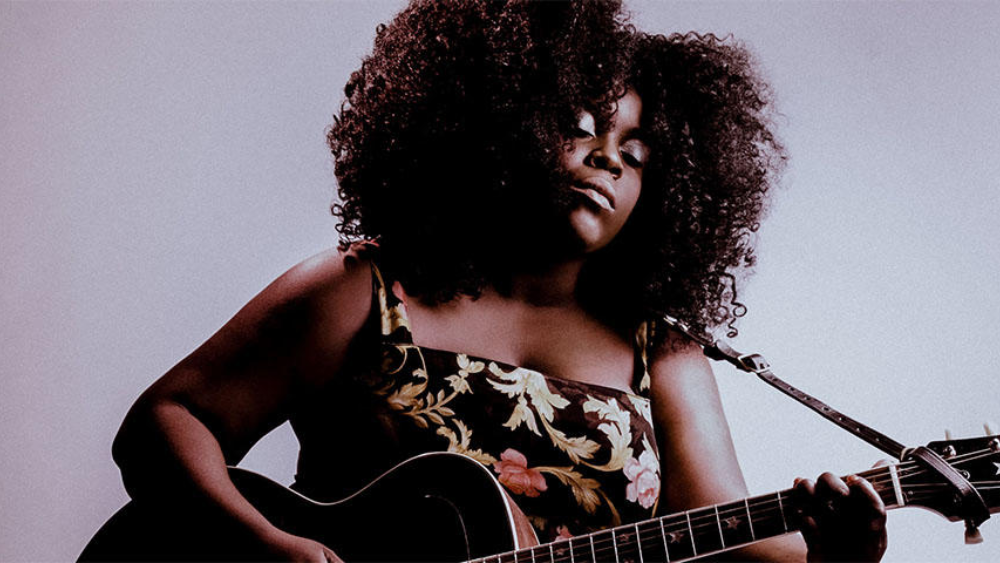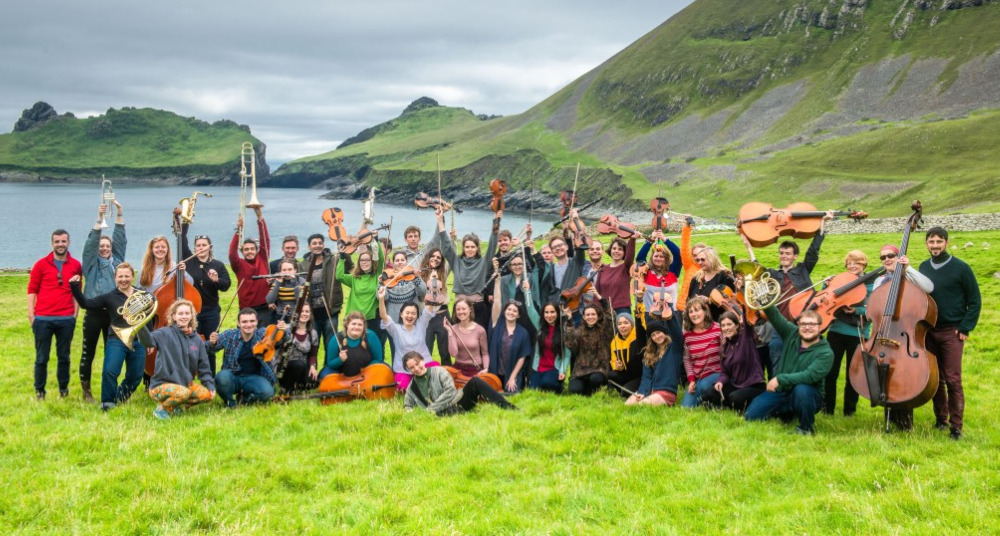Formed by Mike Heron (above, right), Robin Williamson and Clive Palmer in 1966, they experimented with Eastern and Western electric and acoustic instruments, going on to produce the cult album The Hangman’s Beautiful Daughter two years later.
The Grammy Award-nominated LP hit the top five in the UK and propelled the trio into the Woodstock Festival line-up in 1969.
Original member Mike has since played alongside John Cale, Pete Townsend, Keith Moon – plus and the great and the good of the contemporary UK and US folk scenes.
Now preparing some new music with his frequent collaborators Trembling Bells, and with a brand new book documenting the Incredible String Band’s story, You Know What You Could Be: Tuning into the 1960s, we thought it was high time we caught up with him…
What was the atmosphere like back in mid sixties’ Edinburgh, when you started the Incredible String Band?
The folk scene was well underway by then. Everything was centred round a folk all-nighter we’d set up at Clive’s Incredible Folk Club in Glasgow. It was an amazing scene. We’d have John Martyn, Bert Jansch along, everyone would come down. A lot of the beatniks were very active and hanging around there too. It was full of pre-hippies. Clive and Robin were both fully-fledged beatniks but I was still living with my parents and trying really hard to pass myself off as cool!
What attracted you to it?
Well, in the beat scene people either danced or they didn't, and the songs were not that important. Whereas in the folk clubs, people would hang onto every word and note of a song even if it was new and unfamiliar to them. That was attractive to me as a songwriter. I thought, ‘This will be really great and everyone will listen!’

I guess a really good memory was setting up Clive's - I guess it was the first folk all-nighter of its kind in Britain. People came from all over, all ages, artists and audience.
We had to employ a lot of people to play because it started at 12 on Saturday and ran through to six on Sunday morning. That was amazing because we got to meet all our heroes.
Did it feel like a strong counter-culture was emerging?
It did. The beatniks and folk crowds were very open-eared. They really liked the border ballads and unaccompanied singers, as well as the guitar-picking that was coming over from America.
What was it like for you as a young songwriter to be thrust into that scene?
Oh, it was fantastic. It was really great. We had a really captive audience!
You embraced instruments and sounds from all over the world in the Incredible String band. What prompted that?
After our first record in 1966, Clive and Robin were desperate to get enough money to travel. Clive wanted to go to India and Robin to Morocco. So the minute the album was finished, the band broke up actually (laughs). I was left in Edinburgh thinking it was never going to continue. Then Robin came back - he never meant to but he got expatriated! Clive didn't, he continued quite a lengthy journey.
Robin and I continued under the encouragement of Joe Boyd, who’d become our producer and also our manager. Right from at the beginning he thought we were more of a concert act rather than a folk club act. So he got us a gig with Judy Collins and Tom Paxton at the Albert Hall. It was our first concert as a duo outside Scotland, me and Robin, which was great.

Well, when Robin came back from Morocco he brought lots of instruments with him. I had always been into the world music that we could get hold of, which was mostly Indian and North African. The beatniks were into all that stuff. We also listened to some Bulgarian music as well. We incorporated all of that into our music.
A lot of musicians working today still cite you as an influence. Is that surprising?
Yes, it's interesting. Maybe it’s because we’ve never had any hits? (laughs) We had popular albums but we never had hit singles. We were certainly not Top of the Pops material and I think in some way that gave us a cult following.
It's interesting because we never were trying to play for a particular market, we were just making the music we wanted to listen to. So because of that, I think it’s lasted longer.
How do you think the folk scene has changed since then?
I think it's probably a bit tighter now. There seems to be a lot of similar sounding bands. But then again, there are some really unusual people as well. So I think it's quite a lively scene, but very different.
In the early to mid sixties, you would have all kinds of music in the folk clubs. It wouldn't just be standard folk stuff, there would be sitar players among traditional Scottish musicians. There'd be a real assortment of styles and there were never any barriers. In those days audiences were a bit more eager to hear all kinds of music.
Also, everything seems more organised today…
What do you mean?
Well, I remember when we played at Woodstock - they didn't even have cover for the stage, no dressing rooms, nothing. And the only food available was champagne and strawberries! (laughs) There were thousands of people camped out there for three or four days - they couldn't possibly survive on that!
There was a guy called Wavy Gravy, quite a famous hippy character, and he ended up bringing in a truck load of granola, but other than that, everything was very chaotic.
How did you find yourself there?
There was no way to get out or in because there were so many people and they hadn't really organised the roads. We had to be flown in by military helicopter with no side.
Ravi Shankar was travelling with us and he was absolutely petrified!
What was it like to play?
It was quite an amazing event, but it wasn’t great to play at because the sound system wasn't great and none of the things that you expect from a festival were there. It was very early days for that scene.
But to be part of that crowdcwas just amazing. It was right at the time when people were burning their draft cards. Everyone was being called up to go to Vietnam and fight in a war that they didn't really have an interest in. At least half the people at Woodstock were affected by that. It was a great community because they were all in it together.
Who did you see perform?
The Who and Jimi Hendrix. It was funny because Jimi Hendrix’s management had insisted that he had top billing and play last. But of course by the time he played, it was something like seven o'clock on Monday morning and everyone was trying to get back to work! It was a mistake really. He did a tremendous performance but he should have gone on a bit earlier.

We did a big concert at the Barbican based around the Incredible String Band music. For the show, Joe selected various artists and a lot of them we knew, people like Richard Thompson. But the band he chose to bring in was Trembling Bells, and they ended up being pretty much the house band for the concert.
You’ve also collaborated and played with people such as Cass McCoombs, Devendra Banhart, Vashti Bunyan and Alasdair Roberts. What’s that been like?
It’s just been fantastic. All of it. Clive and I did a little tour of America about seven years ago. Somebody said, ‘There's this person who we'd like to open the concerts for you,’ and it was Joanna Newsome. It was just her and her harp, and somebody driving her around in an open-back truck (laughs). She was amazing, really amazing to see.
What’s keeping you busy at the moment?
We've got a couple of things, like Q&As and a couple of literary and music festivals. And we're doing a couple of things with Trembling Bells too.
Mike Heron and co-author Andrew Greig will appear in conversation at a You Know What You Could Be: Tuning into the 1960s book launch event at Waterstones, Edinburgh West End, on 5 April. More info.
The book is published by riverrun on 6 April.
Mike is touring with Trembling Bells, Georgia Seddon and Ed Askew in August, and will perform at the Edinburgh International Festival on 17 August. He will also plays Moseley Festival on 3 September.
mikeheron.co.uk


.ashx)


